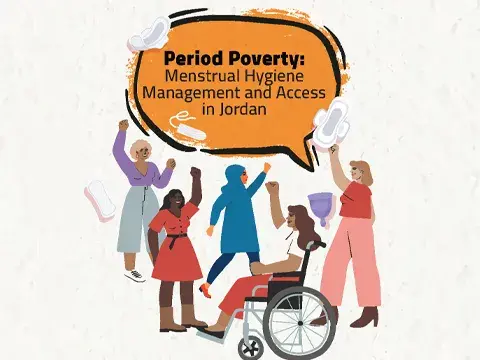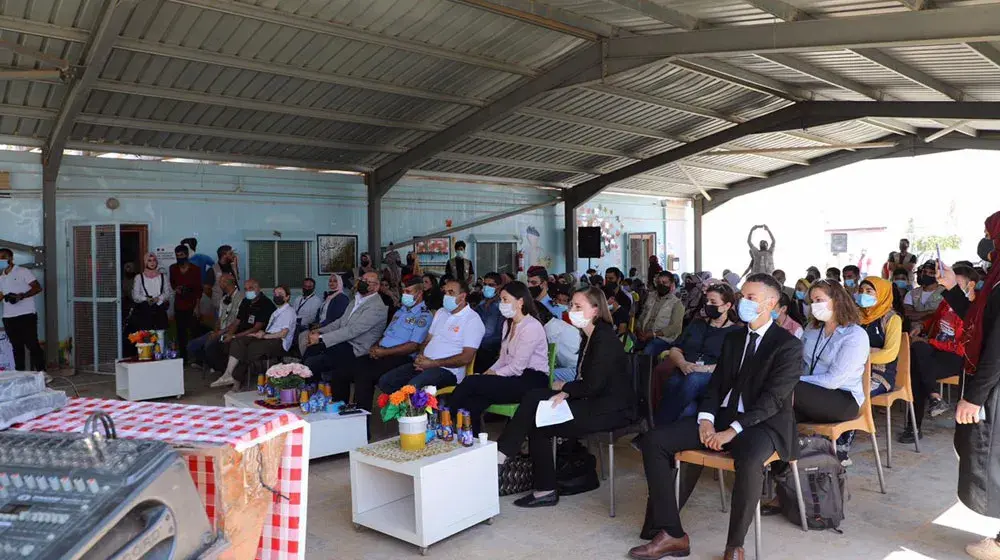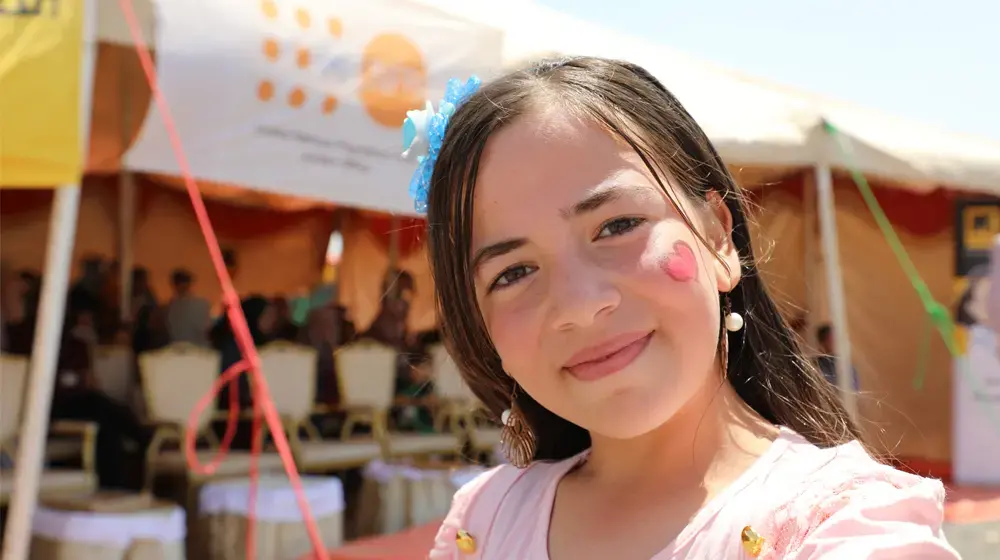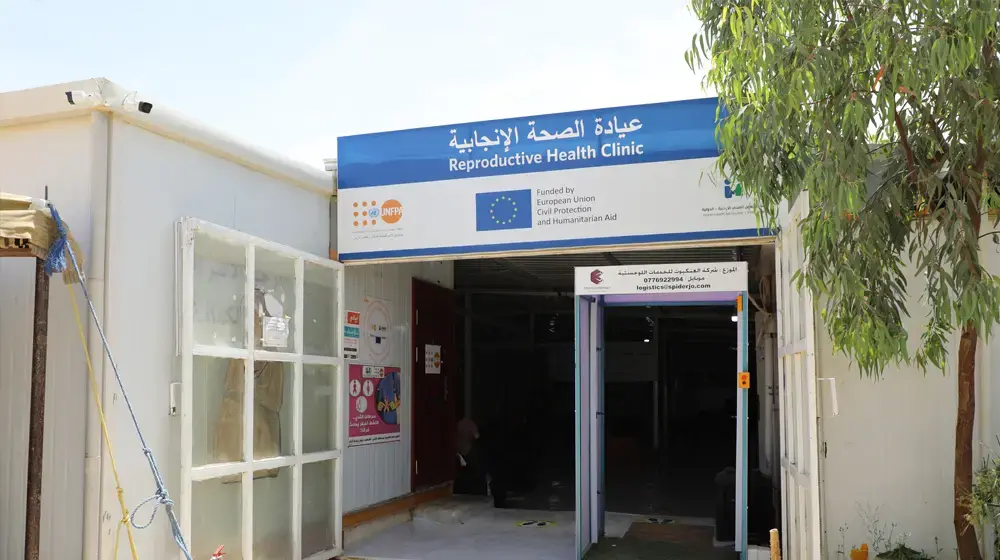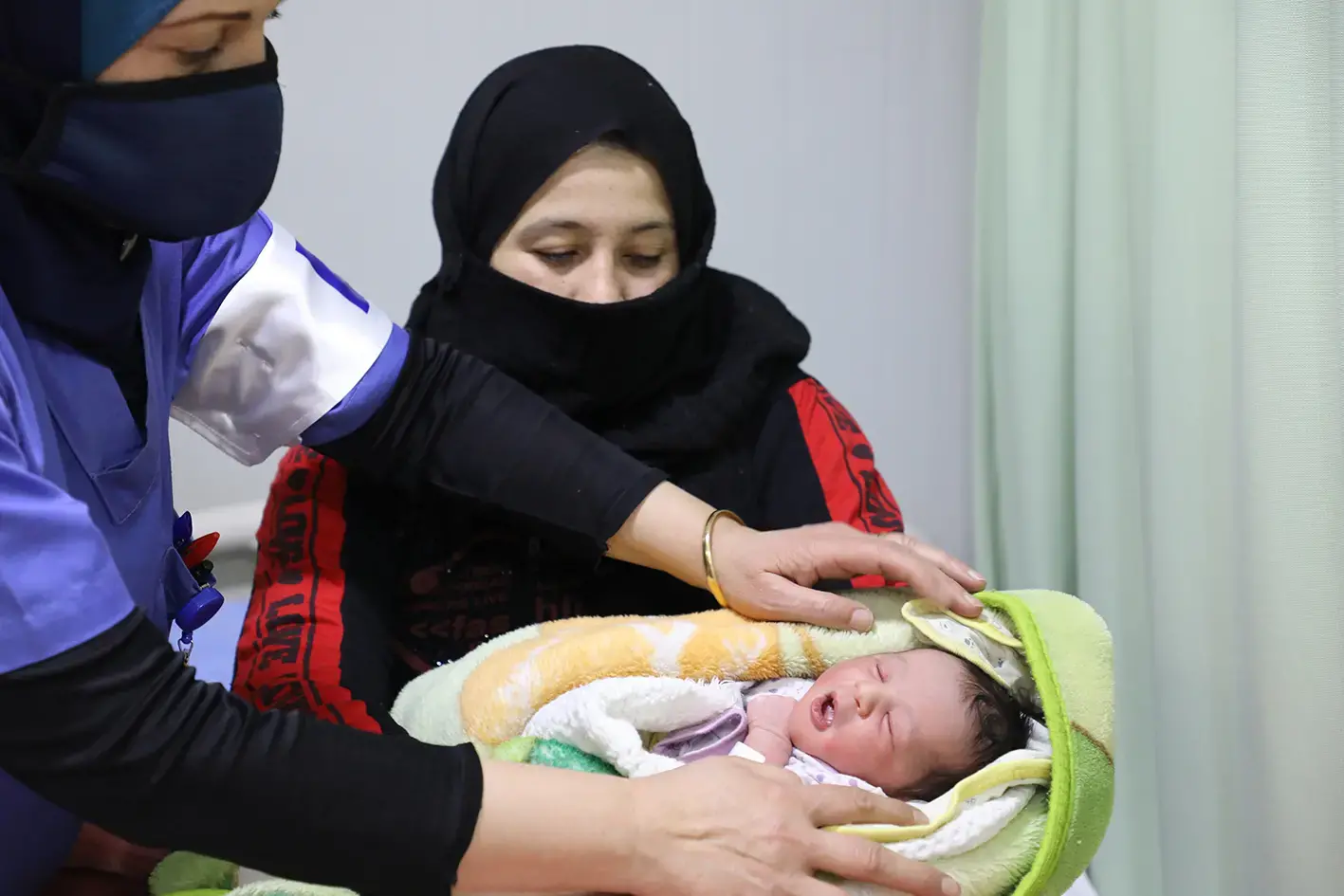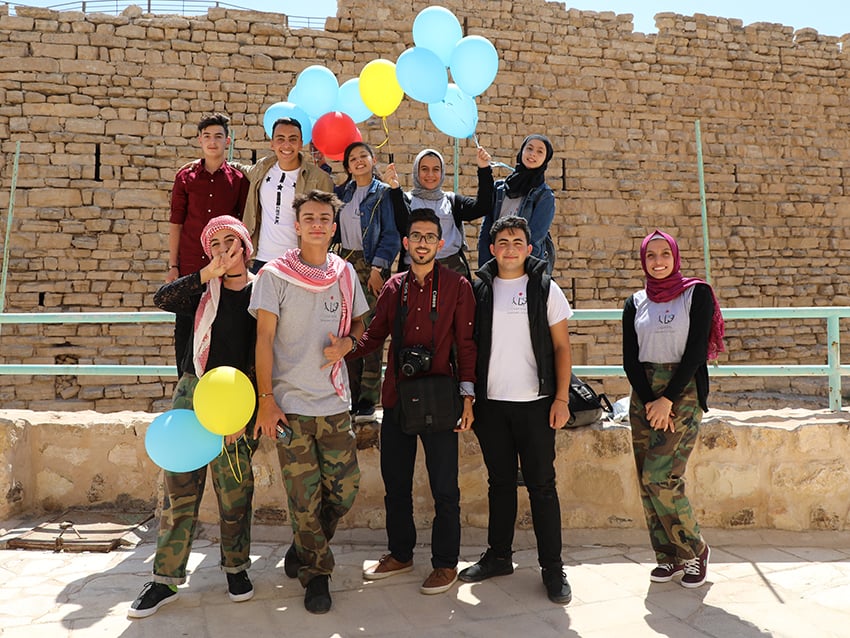
UNFPA is working towards improving young people’s ability to exercise Sexual and Reproductive Health and Rights and create awareness around Gender-based Violence in development and humanitarian settings in Jordan. UNFPA is working with an array of partners and stakeholders to reflect one of UNFPA’s main targets on fulfilling the potential of young people.
Empowering Youth to Take Charge of Their Bodies
UNFPA Jordan works on normalizing sexual and reproductive health and rights in formal and informal settings with governmental organizations, NGOs, and youth groups through various means. UNFPA is supporting the National Committee for Comprehensive Sexuality Education and piloting the previously established Development Characteristics curriculum in 70 public schools with the Ministry of Education.
UNFPA supports thirteen universities to provide Reproductive Health and Health Promotion elective courses with the support of the Royal Health Awareness Society (RHAS), With RHAS, UNFPA has established a youth-led Shababna Network which gives young people the autonomy to work on topics related to SRHR and GBV in their universities.
At the level of health care providers, UNFPA Jordan works with the Jordanian Nursing Council (JNC) to institutionalize an accredited course for graduated nurses in Jordan that focus on young people’s sexual and reproductive health and rights. Additionally, UNFPA works with the Ministry of Health to raise parents' awareness on their children’s SRHR through the Healthy Community Clinics program.
Additionally, UNFPA and HPC launched the National Standard for Youth Friendly Health Services (YFHS) in Jordan. The youth program is working toward providing model YFHS based on the national standards in the Hashemite University, Jordan University of Science & Technology and in 8 Women and Girls Safe Spaces clinics, by providing technical and financial support to launch the clinics.
UNFPA supports peer education and out of school CSE sessions through a wide range of partners including Questscope/UNFPA Space for Change Youth Yenter, Adolescent Girls Empowerment Led (AGEL) center in Zaatari Camp, Institute for Family Health (IFH) in Zaatari and host community, International Rescue Committee (IRC) in Azraq Camp, and Y-PEER Network. UNFPA in collaboration with national partners and youth educators developed a harmonized comprehensive sexual and reproductive health (SRH) education toolkit for UNFPA Jordan to be used by its implementing partner’s. The toolkit is in line UNFPA Global Youth and Adolescents Strategy, and SRHR Jordan National Strategy 2020-2030 and Youth National Strategy 2018-2025
Ensuring Meaningful Youth Participation
UNFPA is working toward diversifying channels and platforms of sharing knowledge about Youth Participation including through media outlets, peer education approaches, and supporting youth groups and national coalitions.
Youth networks, groups and coalitions are key for sharing knowledge and information and building informed alliances to advance youth participation in Jordan. UNFPA is part of the UN wide Youth Task Force which aims to make the coordination of youth programmes more consistent throughout the UN Agencies.
UNFPA was involved in establishing Jordan's first UN Youth Advisory Council (UNYAC) who uphold youth participation within agencies’ strategic plans and direct programmatic work. UNYAC supports UNFPA by providing a youth perspective in planning meetings and acting as champions for SRHR and GBV issues in their networks.
UNFPA continues the support for youth-led networks including Y-PEER Network’s strategic transition planning process, and the expansion for SHABABNA Youth Network in thirteen universities via capacity development and seed funding for youth-led initiatives.
Addressing Youth SRHR and GBV Through Innovation
Media and social media remain an essential tool for youth to access information related to their health. UNFPA established a strategic partnership with ROYA TV, a popular television channel in Jordan to develop television segments under the name of “Mesh Taboo”, meaning “Not a Taboo”. UNFPA also supported the creation of the show Ashrtash, which utilizes comedy as a means to transfer reliable knowledge and bridge the gap between adolescents and their parents, reaching over 2.5 million views on the streaming platform YouTube. The show was performed and written by the talented Rania El Kurdi, and it managed to address vital topics such as STIs, puberty and peer pressure with humor and wit. In collaboration with AmmanTV, UNFPA worked on a television show called Fee Al Mamar, targeting young girls and boys by addressing the gaps in SRH knowledge and awareness. The show aims to improve the quality of young people’s lives by helping them make the right decisions about their sexual and reproductive health.
Advancing the Youth, Peace and Security (YPS) Agenda in Jordan
Since the adoption of the UN Security Council Resolution 2250 on Youth, Peace, and Security (YPS) in 2015, UNFPA Jordan has supported the advancement of the agenda in various ways. Advancing the national efforts on implementing UNSCR 2250, UNFPA supported national efforts to build the National Coalition 2250 on Youth Peace and Security in Jordan. UNFPA co-chaired the YPS Coalition with Generations for Peace until 2022, for which the aim was promoting peace-building, enhancing social cohesion, and increasing youth participation and engagement on the national level. As co-chairs, UNFPA provided technical and financial support for the Coalition to build a strategic framework of action for 2250 along with 22 national and international organizations as Coalition members and a group of active youth in Jordan.
The Ministry of Youth has been a close partner to UNFPA in advancing the YPS agenda in the country. Since 2022, UNFPA is providing the necessary staff, resources, and training to help the MOY develop and establish the YPS unit within the ministry, which is going to oversee the completion of the first Jordanian National Action Plan (JONAP) on YPS together with stakeholders and young people.
Working with and for Refugee Youth
At the field level UNFPA works with marginalized adolescent girls on life skills programs that build their health, social and economic assets, and with youth on SRH and GBV awareness provided by IRC, IFH and QS in camps and host communities to reach both Jordanian and Syrian refugee adolescents and youth. UNFPA works with its partners on creating different youth friendly spaces and outlets to access information and services.
One of the key achievements in the humanitarian setting is the establishment of UNFPA’s model youth led center in Zaatari refugee camp. The Space for Change center is a full-fledged youth center with several educational and recreational activities, including mandatory courses related to SRHR and GBV that youth must take to engage with the center’s activities.
UNFPA plays a key coordination and convening role, by leading the Youth Task Force (YTF) in Zaatari Camp, in collaboration with the Norwegian Refugee Council. The focus of work is on capacity building and provision of services for young people, including a mapping of all youth services in the camp. UNFPA also plays a key role in upholding the principles of The Compact for Young People in Humanitarian Action in Jordan at the national level and works closely with the Youth Committee in Zaatari to ensure meaningful youth participation.
Contributing to National Youth Policies
UNFPA Youth program works on providing technical support for mainstreaming youth and adolescents SRHR issues in key national strategies and policies. Policies that UNFPA have been involved in includes The National Youth Empowerment Strategy by Ministry of Youth, the National Sexual Reproductive Health and Rights Strategy led by the Higher Population Council, and the Essential Services Package for Gender Based Violence, The National Action Plan for National Women Empowerment Strategy by Jordanian National Commission for Women, and the National Action Plan for the 10 years Strategy on Inclusive Education by the Higher Council for People with Disabilities.
DOWNLOAD:
1. Youth Comprehensive Sexuality Education CSE)
2. Youth in Humanitarian Settings
5. Y-PEER



